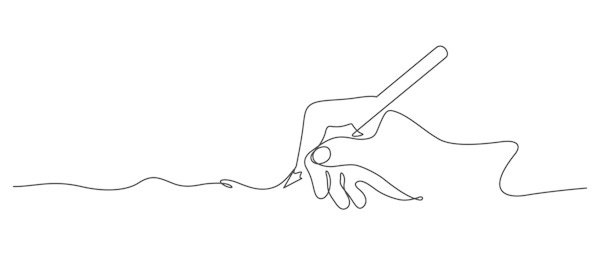Three Lessons from Real Life it Took Me Far Too Long to Learn
Plus the date for our next mindset coaching session
Hi and welcome to the fortnightly free post from ‘Something More’. I’m Caroline Ferguson, mindset trainer, speaker, therapist and your companion in exploring how to build self-awareness and overcome self-sabotage. I throw in the odd personal tale, too.
Time for a quick reintroduction
For those who don’t know me, I’m a cognitive behavioural hypnotherapist and mindset trainer, mostly working with women business owners who want to overcome self-sabotage, build self-awareness (the greatest life skill we can learn) and become stronger leaders of themselves.
I’ve recently come to rest in beautiful Scotland, after several years of enjoying nomadic living. A number of passionate interests bring me joy, including writing, walking (especially along the Scottish coastline) and more recently, writing and recording songs. I may even share one, one of these days… (That idea just triggered a lurch of nausea!)
And then there’s Substack. I love this place and have written an article every week for the last 90 weeks. Free subscribers get a fortnightly article. My paying community get an article each week, plus access to live mindset coaching sessions on the last Wednesday of the month. If you’d like to join in, simply upgrade by hitting the button.
Anyway, I promised you three tips I’ve learned from real life so let’s get on with it.
Here’s my first lesson:
🦉 Spitting in public seems to have largely disappeared, thank goodness. When I was a child it was a (disgusting) thing. Anyone else remember “No spitting” signs on trains and buses?
Kids spat all the time. For boys, especially, being able to hawk a grolly across the road was a symbol of shady cool, right up there with being able to dislocate your rival’s knuckle with a viciously-aimed conker smash. There were bonus points for spitting distance, accuracy and revolting sound effects.
My brothers tried to teach me to spit but I was hopeless at it (plus it was yuck), so I quickly gave up. Before I did, though, I learned one significant lesson:
1️⃣ Never spit directly into the wind.
If you don’t check the direction things are moving in before you take action, you could end up wearing the outcome. As with spitting, so with life. Frankly, approaching a challenge by slamming straight into resistance isn’t worth the mess it could make.
Learnings:
Do your homework before you commit – Find out as much as you can about the environment, the other players and the obstacles you might meet in trying to achieve your objectivbe.
Timing is important – Even a good idea can backfire if executed at the wrong time, or in haste. So pause, then choose your moment wisely.
There’s no point resisting WHAT IS – Work with the situation wherever you can, rather than against it. If you have to confront conflict or the resistance, think of how a sailor uses a boat’s sails strategically to harness the wind’s energy, enabling them sail upwind by tacking across the wind. Find your areas of compatibility or mutual interest and work with those.
Resistance without strategy is self-defeating – blind defiance might feel bold, but often leads to self-sabotage. When you feel yourself furiously against a particular position, dig deep and ask yourself the world’s most important question: “What’s the story I’m telling myself about this situation that’s leading me to feel like this?”. You may find out something you didn’t know about the real source of your resistance. It may not be about the situation, but about a belief you’re rigidly holding onto.
🦉 My second life lesson arrived a bit later.
I rode motorbikes long before I took my car driving test and I learned this particular lesson the hard way during my first year of biking in London.
One morning on my way to work I was trying to navigate multiple lanes of rush-hour traffic on Waterloo roundabout. Stressed, I bunny-hopped my way around the roundabout in a series of jerky moves, anxious not to collide with individual cars. I had to brake sharply on top of a wet, greasy manhole cover to avoid a lunatic pedestrian, which caused my bike to skid and flung me onto my knees, directly in front of a taxi that missed me by millimetres. Ouch.
I learned the lesson again when I was a passenger in a car being driven by a friend on a French motorway in the rain. She was terrified of overtaking big trucks and would end up getting trapped alongside them, speed dropping, hands clenched on the steering wheel causing us to wobble wildly in our lane as she stared in terror at the behemoth blinding us with spray.
After a dozen of these nerve-shredding battles, I smacked the dashboard and said firmly:
2️⃣ Look at the road ahead, not right in front of you!
This broke the spell. She raised her eyes, spied empty space ahead and put her foot down. One, two, three, four seconds… and we were clear of the beast.
When we’re so busy focusing on the minutiae of the immediate experience, especially difficult ones, we can lose sight of the bigger picture.
If I’d followed that advice on Waterloo roundabout and looked ahead at the shape of the traffic, rather than purely reacting to what was immediately in front of me, I might have been able to find a better way through – and probably would have spotted the pedestrian much earlier.
Learnings:
Keep the big picture in mind – While focusing only on immediate problems can make us lose sight of where we’re heading, keeping sight of the bigger picture builds confidence that we know where we are on the map. Also, when we can see the road ahead, bumps right in front of us can feel smaller.
Planning ahead beats constantly reacting – If we’re always scanning the next inch, which is exhausting, we can’t prepare for the next mile.
Too much caution can cause paralysis – Looking down may feel safe, but it also narrows our possibilities. Clarity often arrives when we look up.
Momentum needs direction – Without a clear forward view it’s easy to wander off course, even when we think we’re making progress. Sometimes we just need to put our foot down and power past the obstacles.
🦉 The third of my lessons today is one that took many, many repeated mistakes and failures to learn.
During my first forty plus years, there were things I strongly wanted to do. Have one of my screenplays turned into a film. Move to Australia. Earn enough through writing to buy my flatmate out of the property we bought together. Find someone to build a healthy, forever relationship with.
But though the desire for each of these things was strong, and I put in quite a bit of effort and made some progress, I wasn’t actually achieving any of them. Stuff kept taking up my attention and I would tell myself, “when XYZ is out of the way, then I’ll have the time and space to do what I want.”
What I was blindly overlooking was this simple fact:
3️⃣ The plant that grows is the one you water.
And I had a habit of watering other people’s needs.
I grew up with a belief that I had to prioritise others’ needs over my own. When someone asked for help or looked like they were in trouble, I felt I had no choice but to step in. This is classic people-pleasing behaviour.
Time and again I became bogged down in situations that left me feeling stuck with responsibilities that weren’t mine, sometimes for months, if not years:
* I had three individuals move into my flat at various times because money or mental health problems had made them homeless.
* I nearly bankrupted myself working for more than two years to help someone set up a charity. It was their passion project, not mine, but I believed it wouldn’t happen if I left, and I would be blamed.
* After someone I believed would be my forever partner cheated on me, I carried on supporting him, despite my hurt, because he told me he was heading for a breakdown and I was all that was holding him together. And then he cheated again.
It took me way too long to bring each of these situations to an end because I had an overdeveloped sense of responsibility and an underdeveloped sense to entitlement. I believed it was my job to fix things, regardless of the emotional, mental and financial cost. Meanwhile I became more and more frustrated that I wasn’t achieving my own goals. I was also hurt and angry that the people I supported showed none of the concern for my wellbeing that I delivered for theirs.
“Why does this keep happening to me?” I would ask.
I didn’t realise that the common denominator in these apparently different situations was me. Because I got validation from being needed, and I’d placed such a low priority on my dreams, I was attracting these dramas and gave people permission to keep taking advantage of me.
Just writing about this is filling me with sadness for that version of me, and gratitude that I’ve done the work to embrace self-awareness and self-sovereignty.
Have a go at this quick life audit:
What people, projects or topics swallow up the majority of your energy, time and attention?
Do each of these things take you in the direction you want to go in?
What’s gone on for long enough?
Which of your dreams are you no longer prepared to keep putting on hold?
What can you choose to let go of, or deprioritise, so that you can meet your own needs and desires?
I realise there are some obligations that are non-negotiable, but if you’re honest with yourself and give yourself permission, I’m sure you’ll find areas of time and life that you can reclaim.
That’s all for this week. Thank you for reading and, as ever, please do share your thoughts, experiences and questions in the comments. I’d love to hear how my life lessons land with you, and which lessons you’ve learned from events in your own life.
Until next time, take care,
PS - Our next group-coaching session is at 8pm UK time on Wednesday 28th May. We’ll be looking into what it means to be a highly sensitive person (HSP), as one in five of the population is, or a sensitive upstart (my term for those who are both HSP and high sensation-seeking). Find out if you have those traits by doing the free self tests at Dr Elaine Aron’s website, HSPerson.com/test. The answer could literally change your life.










Wow! Each one of these is incredibly valuable. I need time to digest them all, thanks so much. Great stories illustrating them too